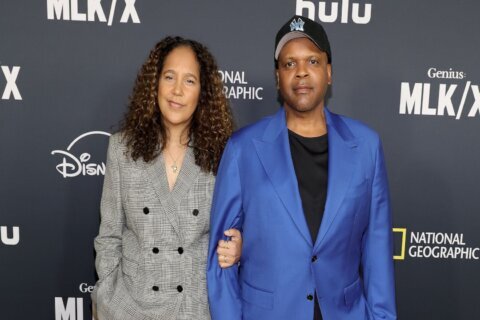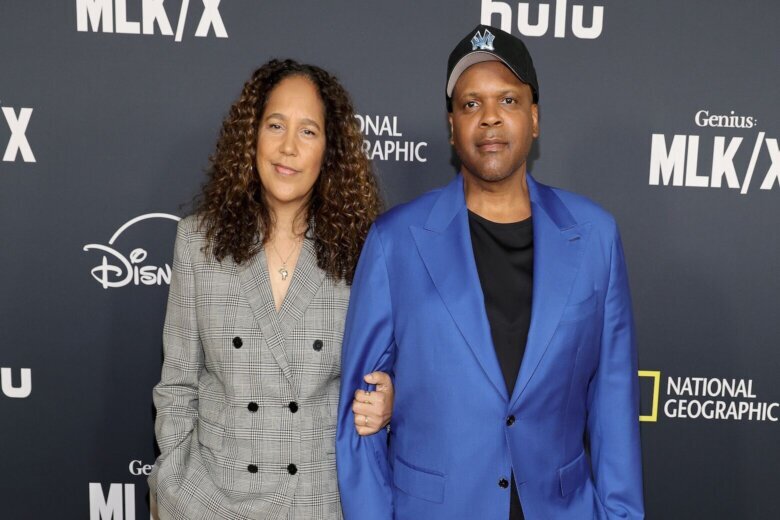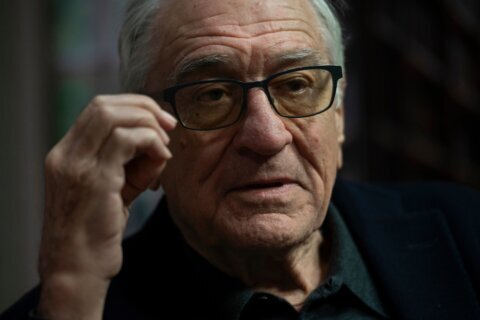
The Civil Rights Movement has become synonymous with Martin Luther King Jr. and Malcolm X.
Their lives are explored in Season 4 of “Genius” subtitled “MLK/X,” which premieres on National Geographic on Thursday, Feb. 1 before streaming on Hulu and Disney on Friday, Feb. 2 to kick off Black History Month.
WTOP caught up with executive producers Gina Prince-Bythewood and Reggie Rock Bythewood.
“It was our intention to take them off the t-shirts and make them tangible … to show the full breadth of their humanity, to not just focus on the iconic moments that everybody knows but the stuff underneath … the tough things they went through,” Gina said. “You take them off the pedestal, you show both their greatness and the things they struggled with. When you see that, you realize I can achieve greatness too. I don’t have to be perfect.”
While previous seasons focused on one icon — Albert Einstein, Pablo Picasso, Aretha Franklin — this season takes on the challenge of intercutting the stories of two men who were both assassinated and whose quotes of non-violence vs. by any means necessary were juxtaposed at end of Spike Lee’s “Do the Right Thing” (1989).
“There’s been a narrative that we have to choose between Malcolm and Martin, but our offering is that we needed both of them, two sides of the same coin,” Reggie said. “What we see going on in the country right now, this urgency to really dig into the people that have put America on the road to greatness: Malcolm, Martin, Betty [Shabazz], Coretta [Scott]. We wanted to do it in a way that felt not like a museum piece, but current and urgent.”
Martin Luther King is played by Kelvin Harrison Jr. (“Chevalier”), who has big shoes to fill after David Oyelowo in “Selma” (2014), while Malcolm X is played by Aaron Pierre (“The Underground Railroad”), who stands in the shadow of Denzel Washington in “Malcolm X” (1992) and Kingsley Ben-Adir in “One Night in Miami” (2020).
“One of the things we were really excited about was showing the youthfulness of these characters,” Reggie said. “Martin was 26 years old when he led the Montgomery Bus Boycott, so it was really fun to just look at the younger versions of these characters. There’s been brilliant interpretations and what our cast does is no less brilliant. I’m very excited for what they’ve done and the contemporary aspect they’ve brought to these characters.”
The cast also includes the late Ron Cephas Jones (“This Is Us”) as Nation of Isalm leader Elijah Muhammad.
“He’s a brilliant actor and we were so blessed to have him as a part of this,” Gina said. “He inspired everybody on set, he embodied a character that is so specific and he did it in such a beautiful way. He was passionate about telling this story and we’re just honored that he was a part of it.”
Three different directors helm the series, starting with Channing Godfrey Peoples in Episode 1.
“Channing is somebody who we loved her first film ‘Miss Juneteenth,’ very special, we knew she was great with actors, great visually, could tell a great story and we wanted for the first hour of this,” Gina said. “That was going to be setting the tone, so we felt like we wanted to get a filmmaker to do something special with it. She knocked that first one out of the park and was involved with setting the cinematic look and really great performances as well.”
Crystle Roberson (“The Gilded Age,” “All American”) was tapped to direct Episodes 2-6.
“Crystle was our producing director as well and a co-EP on the show and she just really laid so much of the foundation and groundwork for our cast and was the glue that kept everything together, along with our show-runners Raphael Jackson and Damione Macedon,” Reggie said. “What really set all of our directors apart was investing in the character arcs, the character work, and taking the time to let the characters work.”
Finally, the flashy music video filmmaker Director X helms Episodes 7-8.
“Every hour is special and iconic, but he brought a real tension to the narrative — everyone had a slightly different visual flair, but we wanted it to all feel like one eight-hour film,” Gina said, to which Reggie added, “We don’t even use the term ‘episodes.’ We say, ‘Eight-hour film.’ We’ll say, ‘Hour 1, Hour 2,’ because that’s really what we reach for. While there’s different nuances with the directors, it does feel like this one full story.”
Both remember what it was like being up-and-coming artists. They met as writers on the NBC sitcom “A Different World” (1992) and tied the knot in 1998 — just two years before Gina directed the iconic sports romantic comedy “Love & Basketball” (2000), which just got inducted into the Library of Congress’ National Film Registry last year.
“I was obviously honored that it went into the registry,” Gina said. “That’s something that you can inspire to. It means that it’s there forever. It was the first film and it’s a beautiful thing that it’s had this longevity. It’s a film that spoke to both Reg and I in terms of relationships within there with parents. It was just a beautiful journey.”
While Reggie went on to write the Notorious B.I.G. biopic “Notorious” (2009) and produce the Apple TV+ series “Swagger” (2021), Gina directed Viola Davis in “The Woman King” (2022), which was ranked by Julie Dash (“Daughters of the Dust”) in her personal Top 10 Films of All Time on the most recent Sight & Sound poll.
“[Dash] went to UCLA film school, so her success, her early success gave me somebody to look up to and aspire to,” Gina said. “It inspired us when we were doing it and we were hoping that it would touch a chord and allow women to see themselves differently than they have. It was a really beautiful experience.”
Listen to their full conversation on the podcast below:
Get breaking news and daily headlines delivered to your email inbox by signing up here.
© 2024 WTOP. All Rights Reserved. This website is not intended for users located within the European Economic Area.








